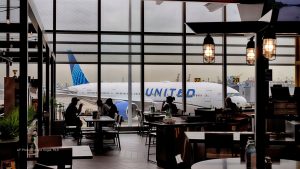Please refresh the page or navigate to another page on the site to be automatically logged inPlease refresh your browser to be logged in
Simon Calder answers your questions about driving a hire car across US states, hiking gear trapped in lost-luggage limbo, and whether French train strikes mean alternative plans are required
Q We want a one-way rental from San Francisco to Seattle in September. But I’ve been told that hiring a car in one state and leaving in another can cost hundreds of dollars. We wondered if making part of the journey by train would save us money?
Terry W
A Moving valuable assets in the shape of rental cars around the nation adds cost and complexity to the business, and one-way rentals that cross state lines tend to come with a substantial drop-off fee attached. I priced a compact car for a week, picking up at San Francisco airport on 1 June, returning to Seattle airport a week later. With Hertz, the one-way drop-off fee is $300 (£226), adding 35 per cent to the total cost of the rental of $847 (£638). Avis quotes similar rates. A rate of about £90 per day, once you have paid for fuel, is a reasonable sum for unlimited motoring in the northwest US. And if you are hiring for two weeks, not one, the daily rate comes down to around £70, commensurate with the drop-off fee being spread across two weeks. If you plan to explore northern California in depth, as well as Oregon and Washington, this is the option I recommend.
Perhaps, though, you are more interested in the northerly reaches of the west coast – and in particular, beautiful Washington State. The portion of the journey that most obviously lends itself to an Amtrak train is from Oakland (just across the bay from San Francisco) to Portland – Oregon’s largest city. The 18-hour journey begins overnight, but with much of the following day spent passing through lovely scenery. A “roomette” for two costs a steep $637 (£480), though it will also save you a night’s accommodation.
This would definitely be my choice if you plan to concentrate the first part of your trip on the fine cities of San Francisco and Portland. A vehicle in either would be an encumbrance; these cities have fairly hostile parking arrangements, but conversely, some decent public transport. Once in Oregon, a week’s car rental – picking up at Portland airport, ending at Seattle airport – is just $504 (£380), because the drop-off fee falls to only $50.
Q My wife and I are due to travel on Eurostar and TGV to Poitiers on Thursday 8 May, then on to La Rochelle on 10 May, and other places after that. So the news of the train strikes on SNCF next week is giving us sleepless nights. All our hotels, etc, are booked so we don’t want to cancel.
Given that Eurostar is unaffected, and that La Rochelle is just about taxi-able from Poitiers, it’s getting to Poitiers that gives us most concern. How bad do you expect the disruption to trains to be? I’m looking at a coach as a backup.
Stephen C
A I am sorry to say that rail passengers in France face severe disruption from tomorrow to Sunday 11 May. Both the CGT-Cheminots and SUD-Rail unions plan strikes in what the unions describe as a semaine noire (“black week”). They are unhappy about the management of SNCF, the national rail operator. Just as two years of strikes by UK rail unions affected countless visitors to Britain, the French walkouts will hit holiday plans for many international tourists.
Typically, during French rail strikes, between one-third and one-half of TGV high-speed trains still run. But I am concerned about your outbound date. Thursday is a public holiday in France, marking the end of the Second World War in Europe in 1945. French workers typically take advantage of public holidays falling on a Thursday to make a bridge (faire le pont) to the weekend and get four days off. Many of them will have rail reservations for 8 May. So while SNCF says passengers booked on trains that are axed will be contacted by email or text “to inform you of the various options”, those options are unlikely to include an imminent replacement booking.
You could book two seats on the Bla Bla Car bus leaving Paris Bercy at 3pm, arriving at Poitiers at 7.35pm, and view the fare of under £20 each as insurance. I would be more relaxed about the Poitiers-La Rochelle rail segment on Saturday. There are frequent trains scheduled, and many of them are TERs (regional expresses) rather than TGVs (high-speed trains). The former are less likely to be cancelled, and also are not capacity-controlled like TGVs. Bonne chance.
Q Greetings from Peru, where I need your advice about our delayed luggage. Our itinerary was from London Heathrow via Amsterdam to Bogota on KLM, with onward connections on Avianca to Lima and then on to Cusco, where we are now. Our baggage did not make it to Lima. KLM says Avianca, which flew the last part of the itinerary, is responsible for tracking it down and getting it to us. We need our trekking gear for our Machu Picchu hike. What shall we do?
Malkit N
A It is always frustrating to discover your checked luggage is missing at the end of a long journey by air – doubly so if it contains specialist gear. Typically, five pieces of baggage go astray for every 1,000 passengers. I am afraid the odds of mishandled luggage increase on any multi-stop trip involving a major hub – such as Amsterdam Schiphol – and also with an inter-airline transfer, like yours at Bogota airport.
KLM is correct that the Colombian airline, Avianca, is responsible for returning your possessions to you at your hotel – even if the problem originated in Amsterdam rather than its base at Bogota. Most missing baggage is reunited with its owner; the question is how long that process takes. The International Air Transport Association says: “The vast majority of mishandled luggage is returned to the passenger within 48 hours.”
Given the complexity of your itinerary, though, it could take longer for your baggage to catch up with you. To help you enjoy the ancient Inca capital of Cusco, buy a reasonable amount of essentials: toiletries and some basic clothing (as you will know by now, it gets chilly in this two-mile-high city). Keep the receipts for purchases and send them to KLM when you return.
Specialist trekking gear, though, goes beyond “basic” and there is no guarantee you will be able to claim the full cost back. I suggest you start looking for possible suppliers of suitable clothing and equipment in Cusco, though hold off buying until the last possible moment. If you end up spending hundreds on new gear, ask the airline to cover the cost; should that claim be rejected, try your travel insurer.
Email your question to s@hols.tv or tweet @SimonCalder
Join thought-provoking conversations, follow other Independent readers and see their replies
Please refresh the page or navigate to another page on the site to be automatically logged inPlease refresh your browser to be logged in




